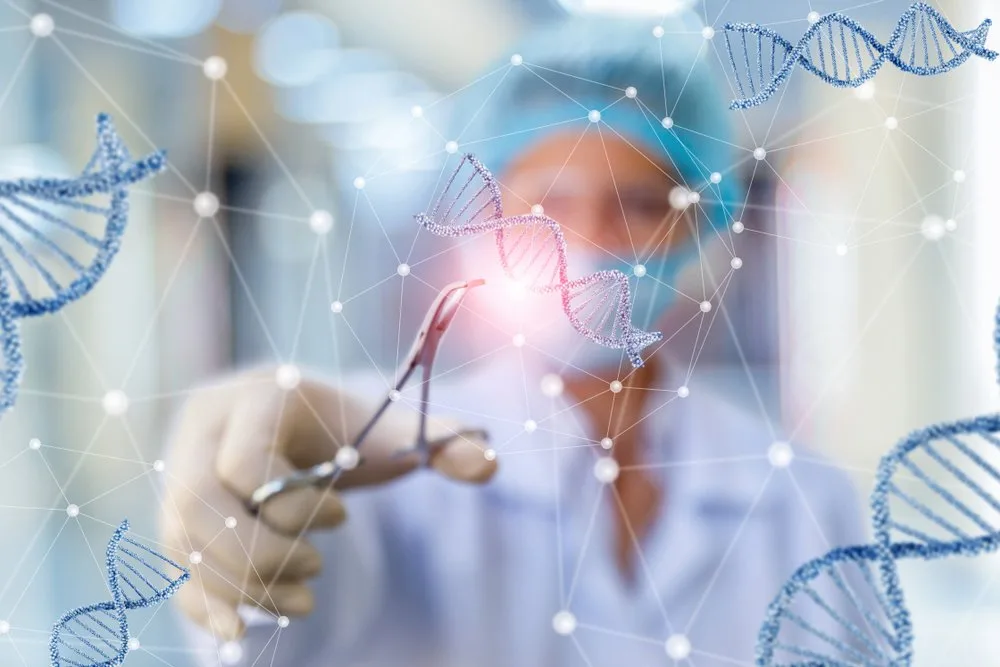What causes aging?
We know that as the years go by, it takes us a second longer to stand up from a chair, and our backs may ache more today than they did yesterday, but why is that? Why do we age? While we can’t reverse the aging process, there’s no reason why our bodies need to deteriorate as the years go by. So while scientists have conceded that we can’t turn back the years, that doesn’t mean that we shouldn’t embrace healthy aging.
So, in an effort to find out how we can better age, research has unveiled nine proponents possibly responsible for the years on our bodies and faces.
The Hallmarks Of Aging That Are Aging You
In a landmark paper published in Cell in 2013, Carlos Lopez-Otın and a team of researchers put forth nine factors that they believe cause biochemical changes that contribute to the aging process.
There are nine hallmarks of aging, and they include genomic instability, telomere attrition, epigenetic alterations, loss of proteostasis, deregulated nutrient-sensing, mitochondrial dysfunction, cellular senescence, stem cell exhaustion, and altered intracellular communication.
While no sole factor is responsible for accelerated aging, shedding light on these hallmarks can help us better understand the aging process and ensure that we’re living a healthier life as the years go by.
What is genomic instability?
According to the National Cancer Institute, genomes are the complete set of DNA (genetic material) in an organism. Your DNA stores all the genetic information your body needs in order to survive, so anything that harms this process will likely cause a few issues.
This is why your cells work so hard to protect your DNA.
Unfortunately, your cells can only do so much and your DNA is constantly at risk of attack. Thus, as an added layer of protection, your DNA finds ways to repair itself. Sadly, this repair can only go so far and before long, DNA damage accumulates and this is known as genomic instability.
Genomic instability is not only a possible reason why we age, but it has been linked to genetic mutations and an increased risk of cancer.
What causes genomic instability?
DNA damage can be caused by both external and internal factors. External factors include UV radiation, chemicals, tobacco, and viral infections, whereas internal factors refer to metabolic changes within the body.
What about getting older?
Aging itself does not cause genomic instability, but as we get older, it does become harder for damaged DNA cells to exit the body, and so they begin to accumulate.

Photo by Annie Spratt on Unsplash
By taking up so much space, these accumulated damaged cells soon begin to impair organ and tissue function.
Dangers of genomic instability
Damaged DNA won’t just age us quicker, but it can also cause mutations and if left unchecked, these mutations can lead to cancer.
Another condition linked to mutations caused by DNA damage is Hutchinson-Gilford Progeria Syndrome (HGPS), most commonly referred to as the “Benjamin Button” disease. HGPS is a rare genetic condition that causes a child to age rapidly, with sufferers only living up to their early 20s. By this time, they’ve already experienced symptoms associated with old age, such as wrinkles, slow growth, hair and hearing loss, joint stiffness, and osteoarthritis. There is currently no cure for HGPS.
How can I prevent genomic instability?
As scientists research ways to address this hallmark of aging, there are a few things you can do to protect your DNA from damage.

Photo by Patrick Hendry on Unsplash
1. Get enough sleep – A study has found an association between disrupted sleep and DNA damage.
2. Enjoy a plant-based diet – Research has suggested that a diet high in organic products, whole grains, fruit, and vegetables and low in processed foods can help protect against DNA damage.
3. Cut back on red meat – As mentioned, DNA damage can increase the risk of cancer and in a 2021 study, researchers found a link between the consumption of red meat and patterns of DNA damage in patients with colorectal cancer.
4. Exercise – In a blog post from the British Journal of Sports Medicine that discussed lifestyle habits as part of a cancer treatment regimen, the writer revealed that regular exercise may help mitigate DNA damage.
5. Wear sunscreen – UV damage is one of the main threats to DNA, so the best way to deal with it is by investing in a broad-spectrum sunscreen with SPF50. I’d also advise that you avoid the sun between 10 am and 3 pm, and be sure to wear sun-protective clothing.
6. Supplement with NMN – NAD+ (nicotinamide adenine dinucleotide) is a naturally occurring molecule found in the body and involved in a number of bodily processes. As such, research has found that changes in NAD+ levels can increase the risk of DNA damage. Unfortunately, the levels of NAD+ decline as we age, and the best way to manage NAD+ levels is through NMN supplementation.
Takeaway
Are we ever going to fully understand what causes aging? Probably not, but that doesn’t mean that we can’t make the process less arduous and more pleasant. In fact, growing older can be a beautiful thing, especially if our health is at an optimum level. Thus, in order to ensure this, we need to be aware of factors that may hinder our health and have us dreading our next birthday so that we can better protect our health span.
Main Image Credit: Natali_ Mis/Shutterstock
References
Cheung, V., Yuen, V. M., Wong, G., & Choi, S. W. (2019). The effect of sleep deprivation and disruption on DNA damage and health of doctors. Anaesthesia, 74(4), 434–440. https://doi.org/10.1111/anae.14533
Gurjao, C., Zhong, R., Haruki, K., Li, Y. Y., Spurr, L. F., Lee-Six, H., Reardon, B., Ugai, T., Zhang, X., Cherniack, A. D., Song, M., Van Allen, E. M., Meyerhardt, J. A., Nowak, J. A., Giovannucci, E. L., Fuchs, C. S., Wu, K., Ogino, S., & Giannakis, M. (2021). Discovery and Features of an Alkylating Signature in Colorectal Cancer. Cancer discovery, 11(10), 2446–2455. https://doi.org/10.1158/2159-8290.CD-20-1656
López-Otín, C., Blasco, M. A., Partridge, L., Serrano, M., & Kroemer, G. (2013). The hallmarks of aging. Cell, 153(6), 1194–1217. https://doi.org/10.1016/j.cell.2013.05.039
Prado, R. P., dos Santos, B. F., Pinto, C. L., de Assis, K. R., Salvadori, D. M., & Ladeira, M. S. (2010). Influence of diet on oxidative DNA damage, uracil misincorporation and DNA repair capability. Mutagenesis, 25(5), 483–487. https://doi.org/10.1093/mutage/geq030
Wilk, A., Hayat, F., Cunningham, R., Li, J., Garavaglia, S., Zamani, L., Ferraris, D. M., Sykora, P., Andrews, J., Clark, J., Davis, A., Chaloin, L., Rizzi, M., Migaud, M., & Sobol, R. W. (2020). Extracellular NAD+ enhances PARP-dependent DNA repair capacity independently of CD73 activity. Scientific reports, 10(1), 651. https://doi.org/10.1038/s41598-020-57506-9






![women [longevity live]](https://longevitylive.com/wp-content/uploads/2020/01/photo-of-women-walking-down-the-street-1116984-100x100.jpg)










